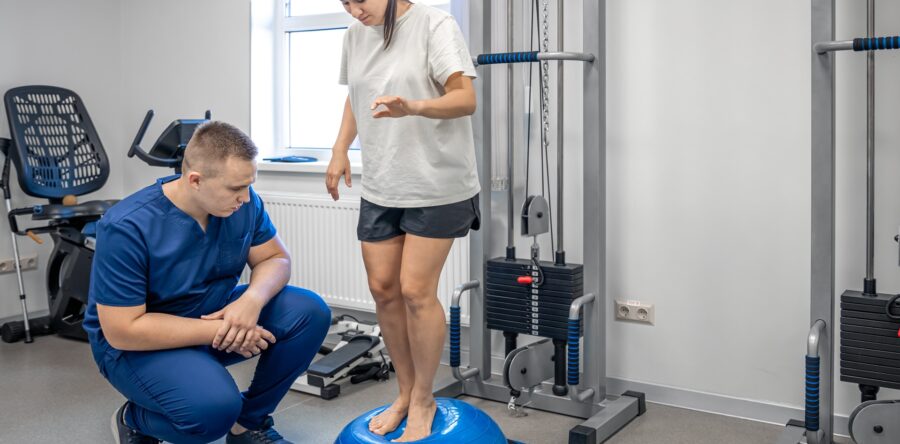Concussions are a serious concern for individuals of all ages, from athletes to those involved in motor vehicle accidents or workplace incidents. These traumatic brain injuries can have diverse and complex symptoms that may persist for weeks, months, or even longer if not treated appropriately. Successfully navigating the path to recovery after a concussion requires a comprehensive approach, relying on expert guidance and evidence-based treatment methods. This is where the skilled team at Whitehorse Physiotherapy comes in, offering specialized concussion management services designed to address individual needs and promote a smooth, effective recovery process.
In this article, we will delve into the fundamentals of concussion management, the pillars of Whitehorse Physiotherapy's approach to treating concussions, and how our dedicated team can support patients on their journey towards optimal recovery.
1. Understanding Concussions and Their Symptoms
Concussions are a type of mild traumatic brain injury caused by rapid acceleration and deceleration forces, which can occur during sports, accidents, or falls. The injury often results from sudden impact or shaking of the head, leading to temporary impairment of brain function. Symptoms of a concussion can vary greatly and include:
a. Physical Symptoms: Headaches, dizziness, nausea, balance problems, sensitivity to light and sound, and blurred vision are common physical manifestations of a concussion.
b. Cognitive Symptoms: Difficulty concentrating, confusion, memory loss, and slower processing of information can occur following a concussion.
c. Emotional Symptoms: Changes in mood, irritability, depression, and anxiety are possible emotional consequences of sustaining a concussion.
d. Sleep Disturbances: Insomnia, frequent waking, or sleeping more than usual can be experienced by those who have suffered a concussion.
2. Whitehorse Physiotherapy's Comprehensive Approach to Concussion Management
Whitehorse Physiotherapy adopts a multi-faceted approach to effectively manage concussions, ensuring a tailored, safe, and efficient recovery process. Our approach to concussion management includes:
a. In-Depth Assessments: Our dedicated professionals conduct detailed evaluations to determine the nature and severity of the concussion, identify specific symptoms, and establish an individualized treatment plan.
b. Evidence-Based Interventions: We use tried-and-tested therapeutic techniques, including physiotherapy, vestibular rehabilitation, and cognitive strategies, to address the diverse symptoms of concussions.
c. Return-to-Play Progressions: Our concussion management services incorporate a structured, gradual return-to-play protocol aimed at ensuring a safe transition back to sports or physical activities.
d. Patient Education: Providing guidance on self-care strategies, symptom management, and activity pacing is an integral part of our comprehensive approach to concussion management.
3. Effective Treatment Techniques for Optimizing Concussion Recovery
Our specialized team at Whitehorse Physiotherapy employs a wide range of evidence-based treatment techniques to facilitate a successful recovery from a concussion:
a. Physiotherapy: Tailored exercises targeting neck and spinal mobility, strength, balance, and proprioception can aid in alleviating headache and dizziness symptoms associated with concussions.
b. Vestibular Rehabilitation: Specialized exercises designed to improve the function of the vestibular system - responsible for balance and spatial orientation - can help individuals regain a sense of stability and reduce dizziness.
c. Cognitive Strategies: Working with cognitive strategies can help patients manage the cognitive challenges they might face after a concussion - including addressing concentration, memory, and processing speed issues.
d. Progressive Return-to-Play Protocol: Establishing a gradual, structured plan for safely returning to sports and physical activities is crucial in minimizing the risk of re-injury.
4. The Importance of Individualized Concussion Management Plans
As each concussion is unique, it is critical to establish an individualized treatment plan that addresses the specific needs and goals of the affected individual. Factors influencing the recovery process include:
a. Age: Children and adolescents may require a longer recovery period due to their developing brain and increased susceptibility to post-concussion symptoms.
b. Prior Concussions: Individuals with a history of concussions may experience a slower recovery and increased risk of long-term complications.
c. Pre-existing Conditions: The presence of pre-existing conditions, such as migraine, ADHD, or anxiety, may influence the severity and duration of concussion-related symptoms.
d. Severity of Injury: The severity of the concussion and the individual’s symptoms will directly influence the treatment approach and recovery timeline.
Regain Control of Your Health with Whitehorse Physiotherapy's Concussion Management Services
Concussions can have a significant impact on an individual's quality of life, potentially leading to long-lasting symptoms if not managed appropriately. At Whitehorse Physiotherapy, we understand the importance of providing tailored, evidence-based concussion management services and expert guidance to navigate each patient's unique recovery journey. Our comprehensive approach ensures that individuals receive the personalized care they require for a safe and effective return to their daily activities, work, and sports.
Don't put your brain health on hold - take the first step towards a successful concussion recovery by scheduling a consultation with our expert physiotherapists at Whitehorse Physiotherapy. Let our dedicated professionals walk you through every stage of your recovery, providing support and customized treatment plans designed to meet your individual needs. Contact us today to regain control over your health and embark on the path to a full recovery.





